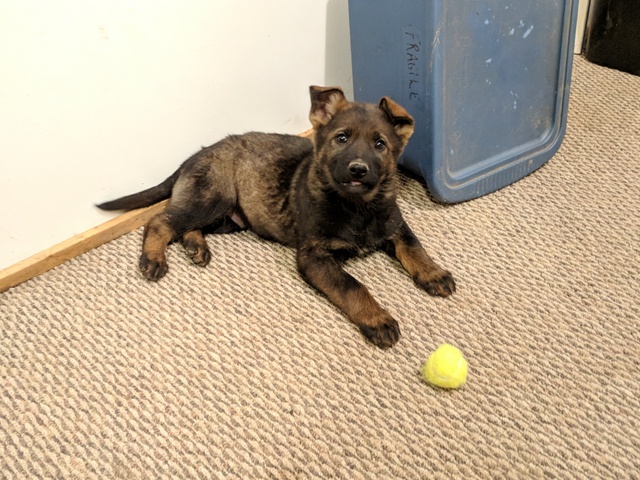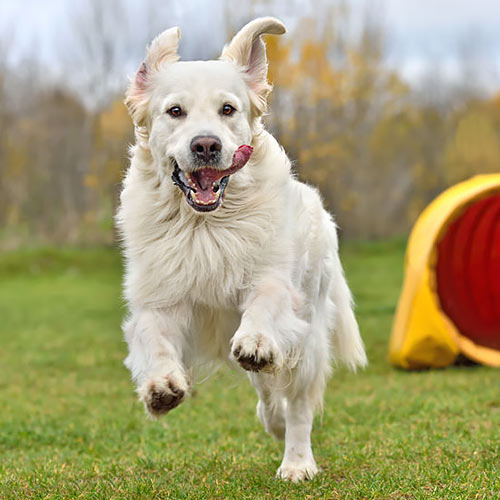Occasionally the question arises, “What is the difference between a working dog prospect pup and a family companion pup?” This is a very fair question indeed. The answer is very more detailed than a simple article will allow, yet the following is a brief attempt to answer the question.

Both working prospect and family companion pups are strong, healthy and worthwhile. Nothing is “wrong” with either of them. It’s just that these two classifications meet two different needs, depending upon the individual or family involved.
The biggest difference between a working prospect pup and a family companion pup is the temperament. In every litter there are some dogs who show a capacity to work and others that do not. The best dogs and bitches from the greatest bloodlines have this same phenomenon; some breeders will admit it, others will not. Those pups who do not exhibit working qualities will still make very nice companion animals.
In a working prospect pup, we are looking for those qualities which, when developed, will produce a dog that is able to perform a variety of other capacities which fall under the heading of “work.” These pups will display a higher prey drive and demonstrate greater self confidence. These two qualities are essential for the work ahead. The typical working prospect owner will be interested in his pup growing into a personal protector, or a Schuzthund or PSA dog, or a police K9, and the like. A working prospect is programmed to work. He can still be a loving family friend, trustworthy around children and strangers, but he is also hardwired to perform the rigors of daily labor, if needs be.
The family companion dog will be, like his counterpart, very intelligent. He is generally a little more laid back and usually softer than a working dog. He will typically alert his owners of an approaching stranger and make a good watch dog. He generally will not have the internal programming required for the intense training which will teach him how to stop an intruder or attacker; i.e. a guard dog. He will still need mental and physical exercise on a frequent basis, howbeit somewhat less than that of the working prospect. This is what attracts some people to a companion animal; some cannot meet the increased physical and mental demands of the working dog.
The bottom line is — both working dogs and companion puppies have strengths and limitations. You as a potential dog owner must decide which is best for you and your family.
If you have other questions about our pups, feel free to call 812-650-2394 or email info@conifercanine.com.

